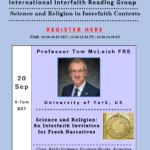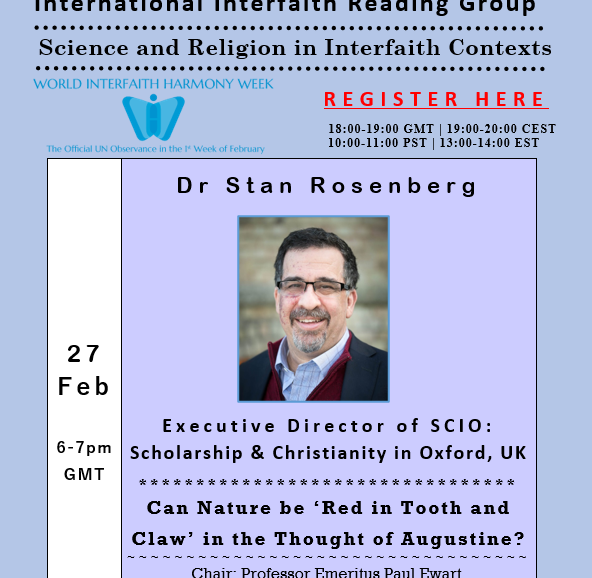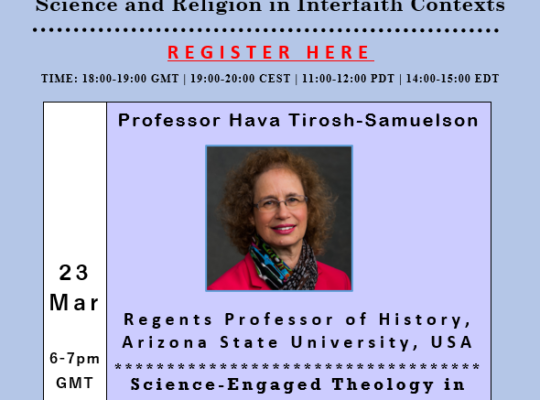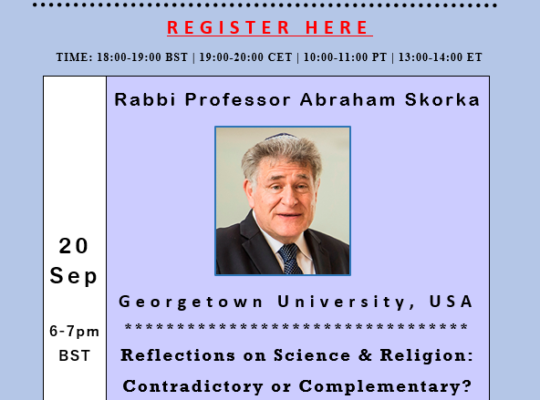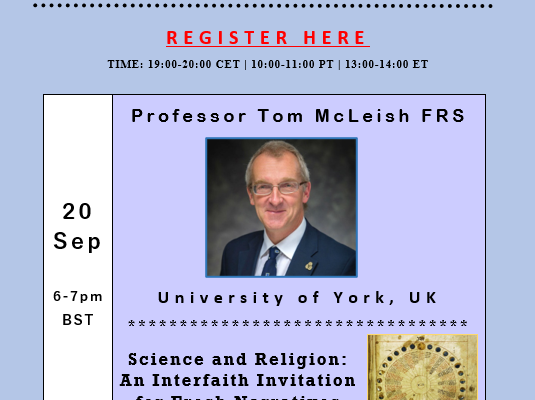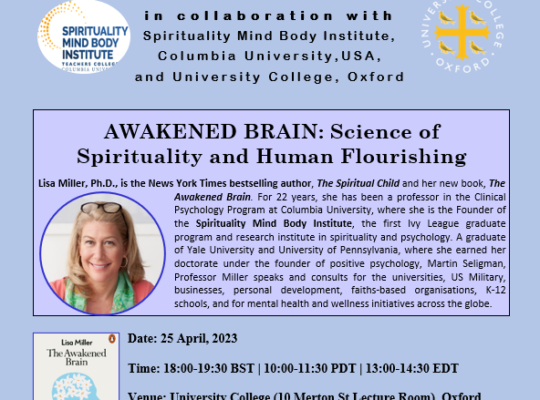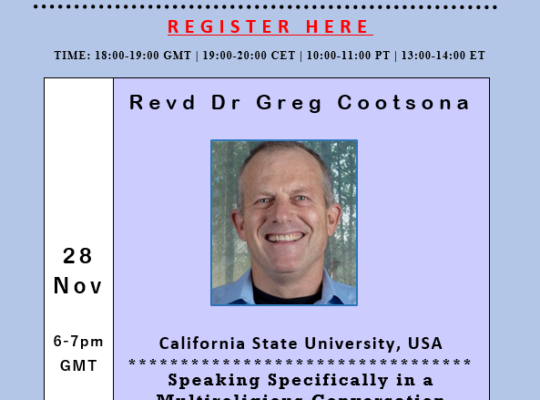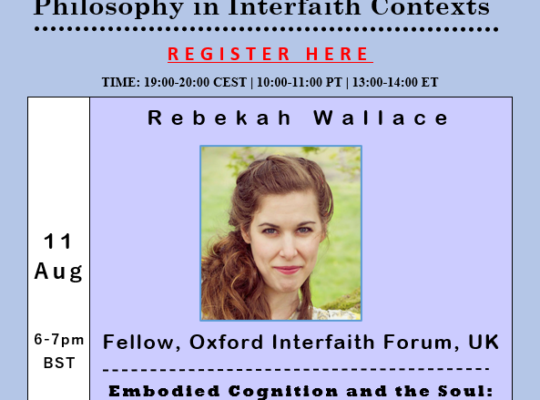27 February, 2023
We are deeply honoured to welcome Dr Stan Rosenberg, Executive Director of Scholarship and Christianity In Oxford (SCIO), Vice President for Research and Scholarship at Council for Christian Colleges & Universities (CCCU), and a member of the Faculty of Theology and Religion, and of Wycliffe Hall at the University of Oxford, to lead a session of the Science and Religion in Interfaith Contexts Reading Group.
Here are the details of this fascinating event.
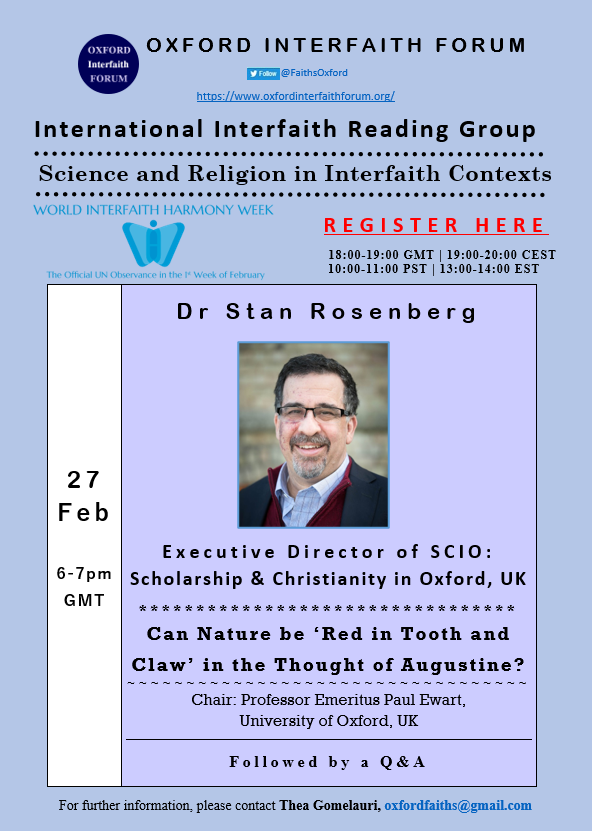
Topic: Can Nature be ‘Red in Tooth and Claw’ in the Thought of Augustine?
Abstract: Can a Christian account of evil accept an understanding of nature as ‘red in tooth and claw’ from the outset? At the core of Augustine’s theology, and the theological systems that shape the Augustinian tradition, is an approach to evil based on privation theory. Privation theory asserts a primal purity and a Fall subsequently corroding the originate state. On the face of it, such an approach would seem to be the cause of decay, cataclysm, animal predation, and pain in the natural world. This view wholly conflicts with later understandings of evolutionary development. In evolutionary science, such violence is endemic; hence, so-called ‘natural evil’ is an essential and ongoing operation within the physical and biological world. This lecture challenges the standard presentation that Augustine argued for privation as the cause of physical and biological decay and so should be understood as contradictory to an evolutionary understanding. Alternatively, it presents the basis to understand Augustine’s approach as treating natural cataclysm and violence as an originate facet and essential activity within the natural world and so integral to natural history, not as a consequence of a Fall. His later interpreters who claim him as an authority asserting that the natural world became alienated from God after the Fall, and only then began experiencing such physical and biological disturbances when violence and destruction were introduced into nature, have arguably misconstrued his position. This investigation is necessary to defining whether one doing theology in an Augustinian tradition can readily support biological evolution, must reject evolution if affirming Augustinian theology, or needs to alter the Augustinian approach to evil in order to affirm evolutionary interpretations. In analysing these issues, the lecture more broadly serves as a case study in working through issues of actual or apparent conflicts between theology and the sciences.
Speaker: Dr Stan Rosenberg is Vice President for Research and Scholarship for the Council for Christian Colleges & Universities and is the founder and Executive Director of SCIO: Scholarship and Christianity in Oxford (the CCCU’s UK subsidiary). He is a member of the Faculty of Theology and Religion and of Wycliffe Hall at the University of Oxford. A fellow of the International Society for Science & Religion, he is a historian of Late Antiquity and Early Christianity focusing on Greco-Roman and early Christian cosmology, the Latin west, and Augustine, in particular. Dr Rosenberg directs projects shaping a wide variety of international students including Logos (working with the Museum of the Bible for which he is an advisor). Active in science and religion discussions, he is on the BioLogos advisory council and the general editor and an author of Finding Ourselves after Darwin: Conversations about the Image of God, Original Sin and the Problem of Evil, Baker Academic, 2018. Dr Rosenberg has directed multiple science and religion projects funded by major, internationally-recognized funding bodies including two of the Templeton foundations. He is married to Joy, who is a consultant clinical audiological scientist at the national school for the deaf; born and educated in the USA, they are dual nationals and have lived in Oxford since 1999 where they raised their two children.
Chair: Professor Paul Ewart, Emeritus Professor at the University of Oxford, and Chairman of Christians in Science.
Opening/concluding statements: Dr Yashua Bhatti, Fellow of the Oxford Interfaith Forum.
Time: 18:00-19:00 GMT | 19:00-20:00 CEST | 10:00-11:00 PST | 12:00-13:00 CST | 13:00-14:00 EST
Venue: Online
After registering, you will receive a Zoom email containing information about joining the meeting. If you do not see the zoom email in your inbox, please, check your spam folder.
If you would like to join the Science and Religion in Interfaith Contexts Reading Group, please sign up here.
Recordings of past sessions
Related Sessions
- Awakened Brain: Science of Spirituality and Human Flourishing
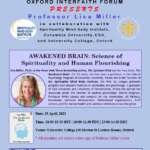
- Bouncing Back from the Climate Crisis to Climate Resilience
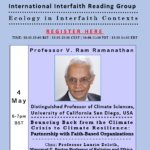
- Science-Engaged Theology in Judaism: Historical Overview
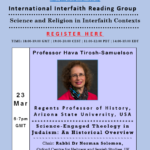
- The Awakened Brain: The New Science of Spirituality and Our Quest for an Inspired Life
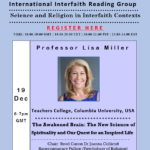
- Speaking Specifically in a Multireligious Conversation with Science
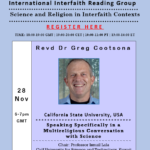
- Strangers on a Train: Climate Change, Jewish Thought, and the Duty of Witness
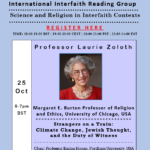
- Embodied Cognition and the Soul: Lessons from Cognitive Science and Christian Eschatology
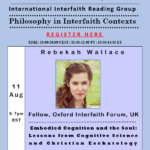
- Reflections on Science & Religion: Contradictory or Complementary?
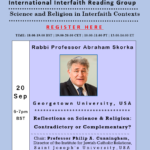
- Climate, God, and Uncertainty: A Transcendental Naturalistic Approach to Bruno Latour
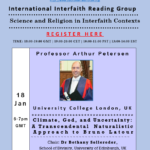
- Can Nature be ‘Red in tooth and Claw’ in the Thought of Augustine?
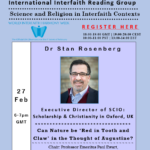
- 🕯️Science and Religion: An Interfaith Invitation for Fresh Narratives
